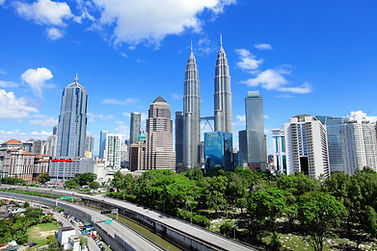
MALAYSIA

The Federation of Malaysia began to exist as a unified state in 1963. Previously, its territory was divided into a series of colonies and dominated by the United Kingdom. Thanks to a high level of planning and work, the country has achieved a high level of growth since the 1980s, making it a newly industrialized country.
International trade is an essential part of the Malaysian economy, since it is one of the three countries that control the Strait of Malacca - a maritime corridor that links the Andaman, South China and Indian oceans. It even became the main exporter of tin, rubber and palm oil. The industrial activity corresponds to a large percentage of its economic output, and also has great biodiversity of flora and fauna, comprising along with several of its neighbors in the ASEAN community the list of mega-diverse countries.
Like any smaller country, the culture and history of Malaysia have a marked influence on the way of doing business in the country. It is one of the cases where it is key to have prior knowledge before starting negotiations, since the cultural complexities that it presents may be difficult to navigate. Fortunately, there are characteristics shared by its three main ethnic groups (Malays, Chinese and Indians) that simplify the process of generating key business relationships as quickly and simply as possible.
A curious fact: the Malaya (the meat cut) has nothing to do with Malaysia. In fact, it seems that it is Argentine. But actually, the feminine name of Malaysian women in Spanish is Malay.
Population:
31.3 million
(2017)
GDP (USD)
314.5 billion
(2017)
GDP Growth rate:
5.4%
(2018 forecast)
General Information

Main languages:
Malay (official), English

Capital:
Kuala Lumpur

Key cities:
George Town (Penang), Ipoh

Currency:
Ringgit (MYR)

Official religion:
Islam
Economic Composition

Malaysia is a MIDDLE-HIGH income DEVELOPING
economy
Why Malaysia

-
One of the world’s most competitive economies
-
Global leader in Islamic finance
-
High level of development
-
High labor productivity
Main Industries

Electronics

Banking and finance

Petroleum & gas

Rubber
High growth Sectors

E-commerce

Islamic finance

Food and beverage (F&B)

Manufacturing
